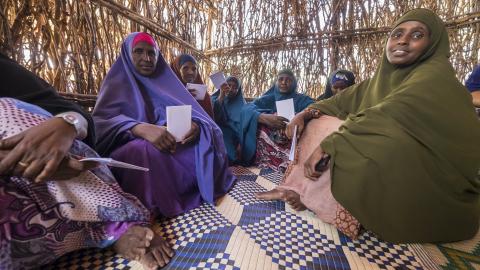
Somalia Resilience Programme (SomReP)
What we want to do
Through SomReP -- a Consortium, made up of seven International Non-Governmental Organizations (INGOs), we aim to find better ways to leverage collective sectoral expertise and long-standing relationships with communities to tackle the challenges which recurrent shocks pose for Somali families. This is through:
- Improved capacity of households to implement effective disaster risk management and positive coping strategies to mitigate the immediate effects of exposure to shock
- Improved capacity of individuals, households and communities to adhere to positive development trajectories, despite exposure to shocks and utilise strategies designed to allow adaptation to rapid and slow-onset hazards
- Improved capacity to engage in strategies for sustainable livelihoods and economic growth to enhance food security and resilience
- Transparent and accountable governance structures at the community, district and national levels to ensure an enabling policy and regulatory environment for sustainable livelihoods and economic growth
- Monitoring, Evaluation, Accountability & Learning (MEAL) systems in place, including a data management platform, which form the evidence base for informed decision support analysis and strategic programming with learning and research generated and shared among relevant stakeholders.
How is World Vision addressing the issues?
SomReP’s approach acknowledges likely shocks and stresses, and explicitly designs programme components to promote the local adaptive capacity of households and communities, while building institutional capacity, strengthening the natural resource base and preventing loss of lives and livelihoods through early action. SomReP works with communities to provide families with multiple livelihood options so that they could withstand shocks.
Is what World Vision doing working?
Yes. The programme’s long-term commitment has achieved development in three resilience capacities (absorptive, adaptive and transformative) and its ability to release Crisis Modifier Pool funding to address shocks has made it relevant in an emergency, humanitarian/early recovery and development settings.